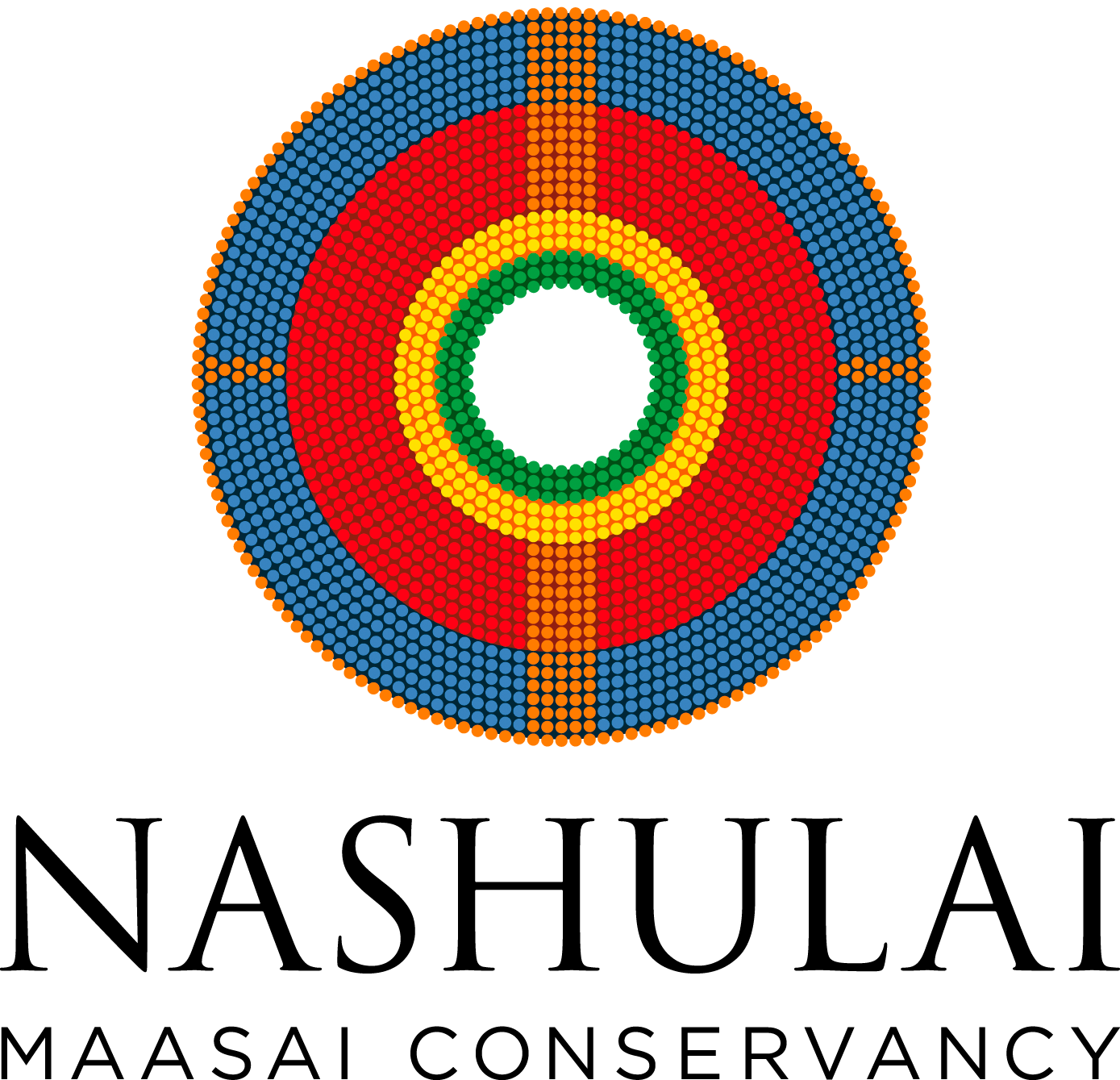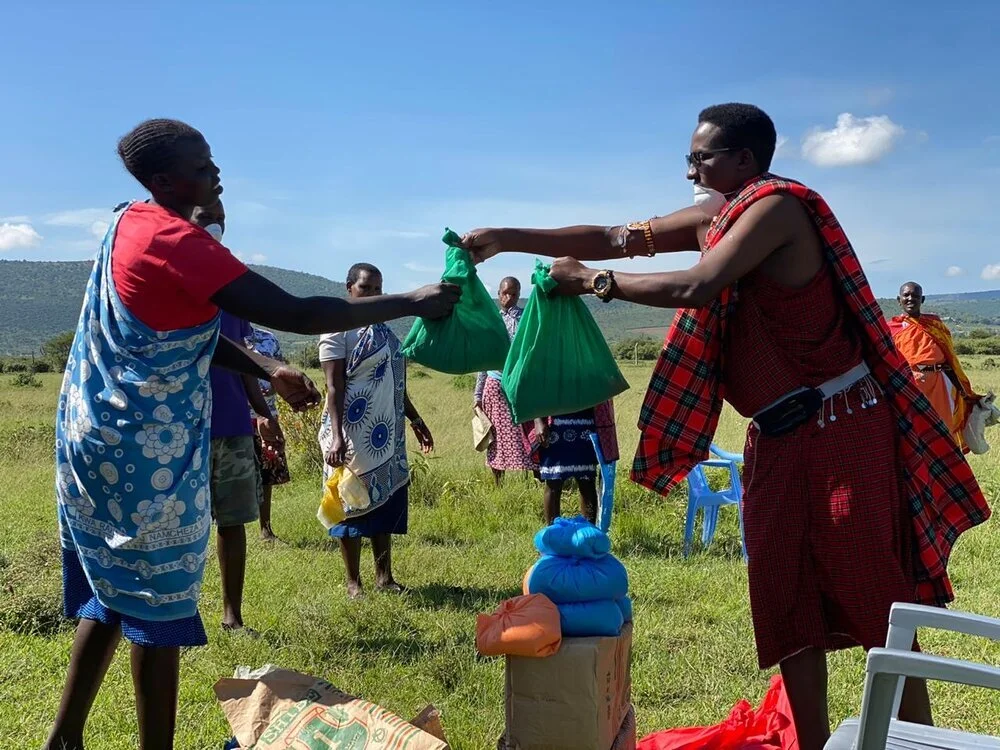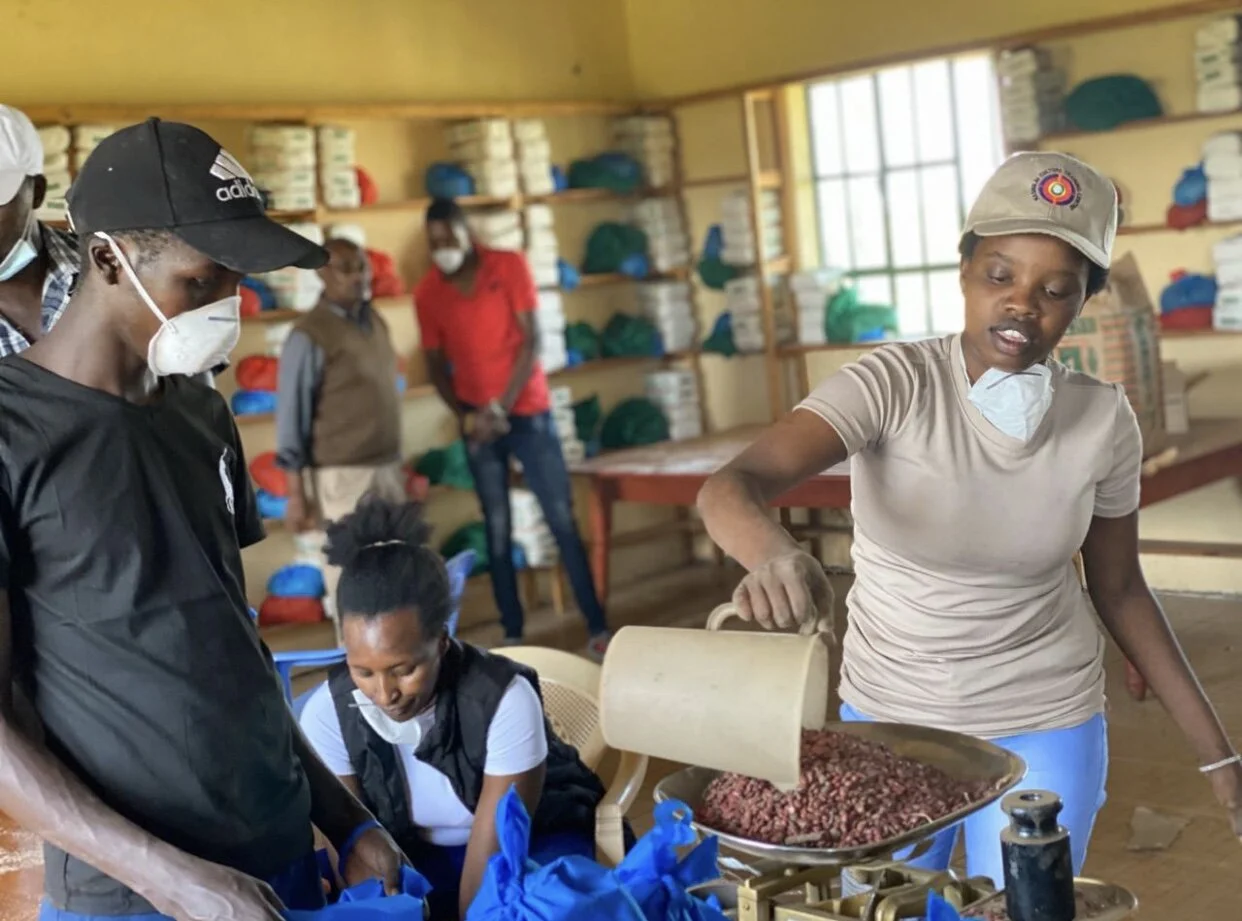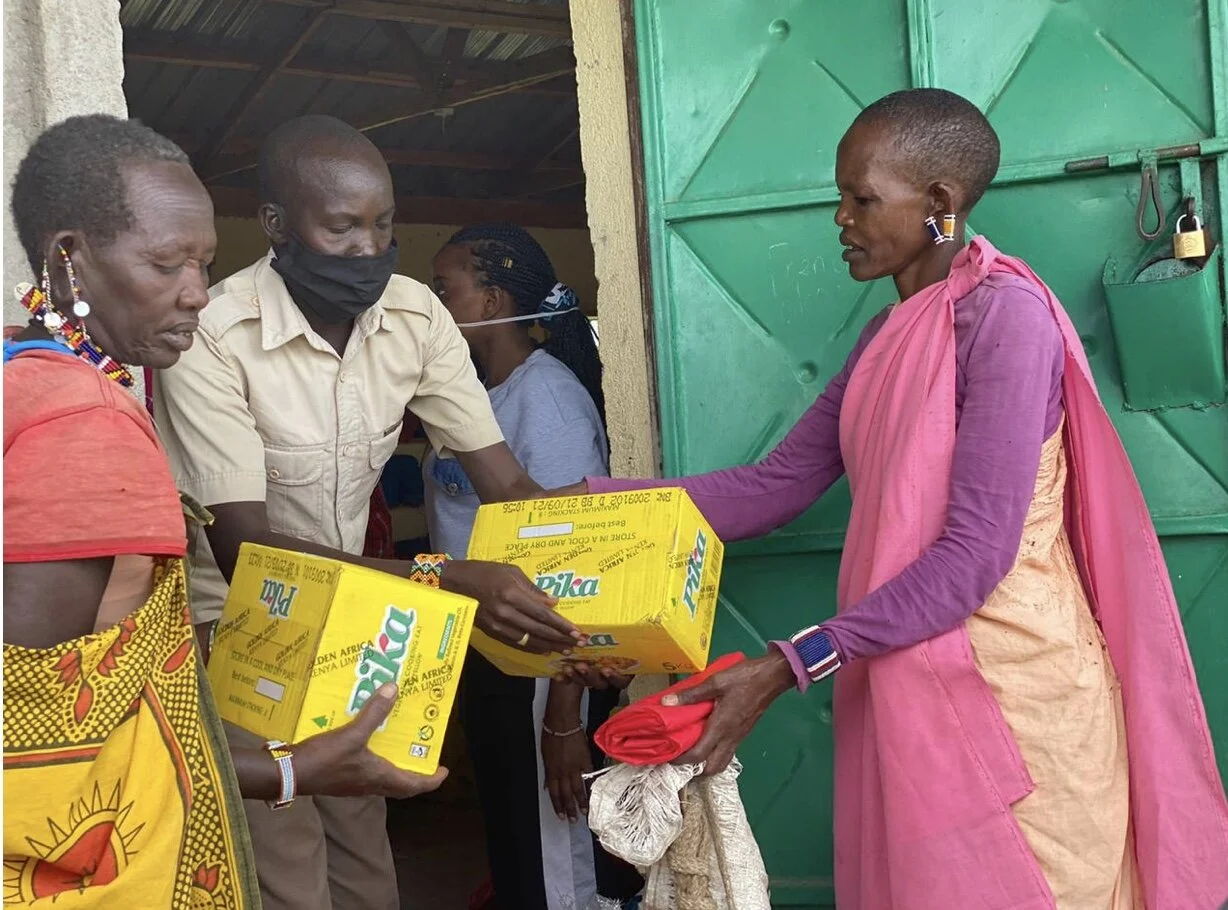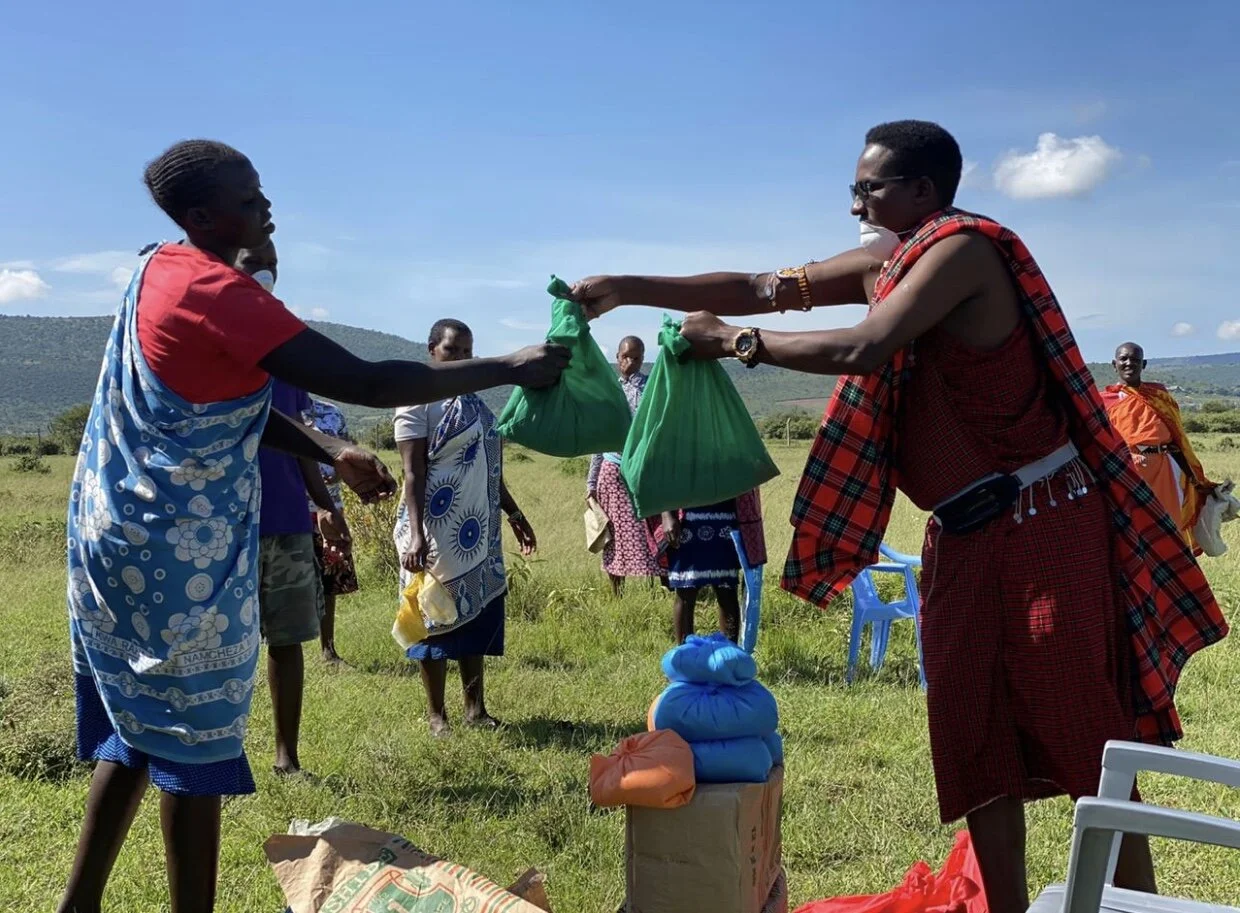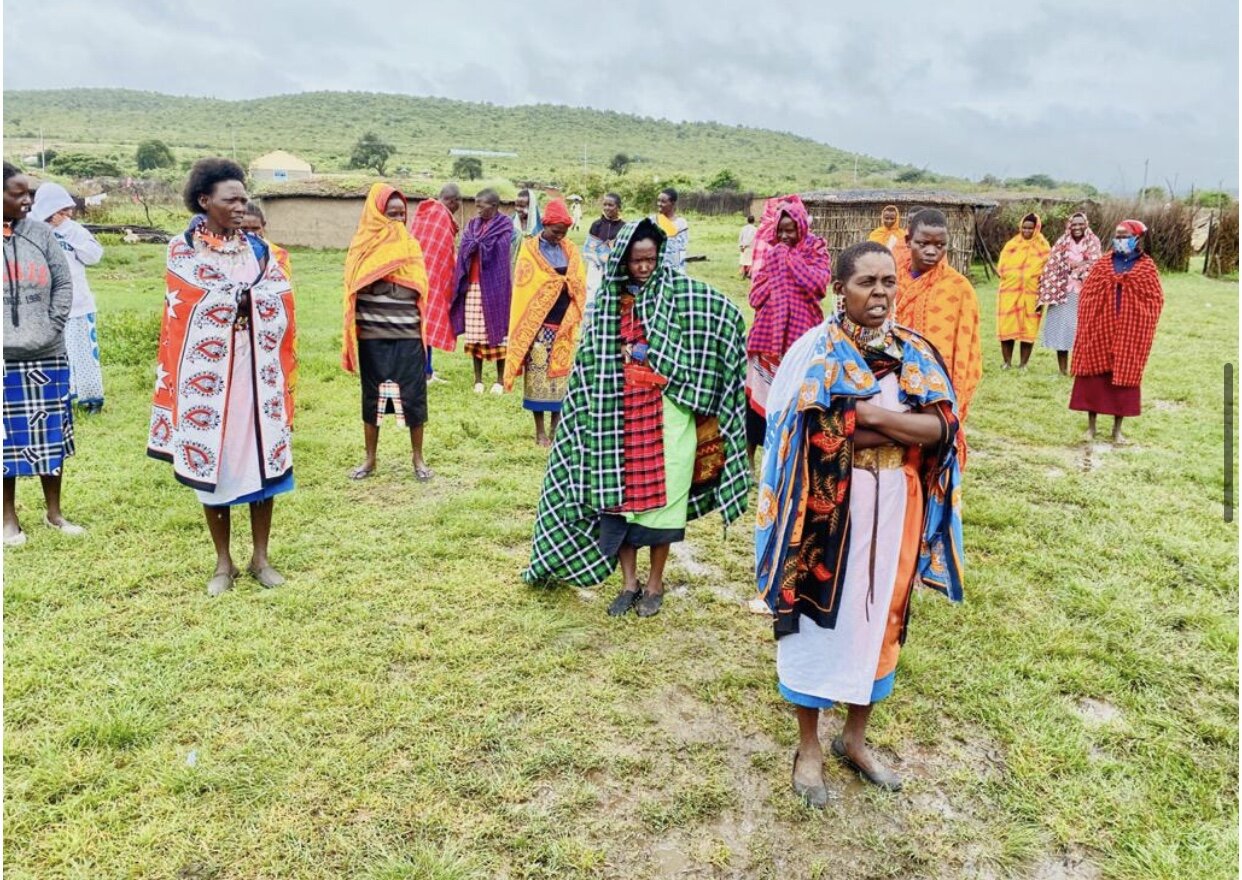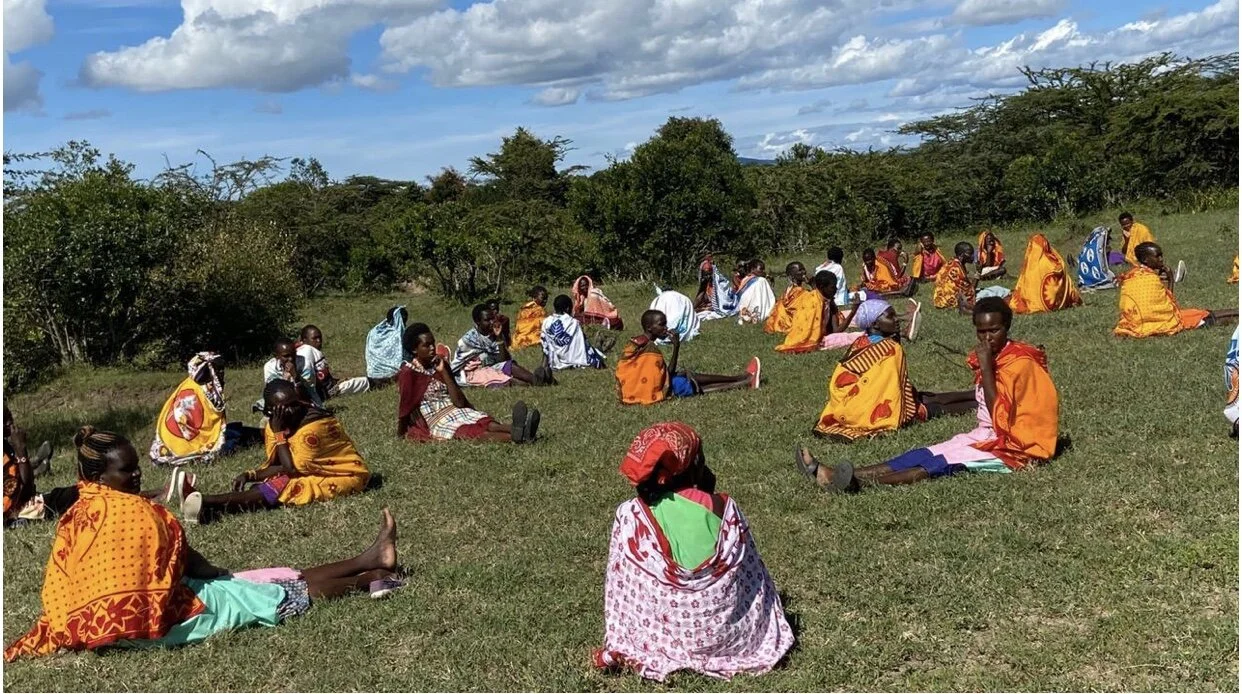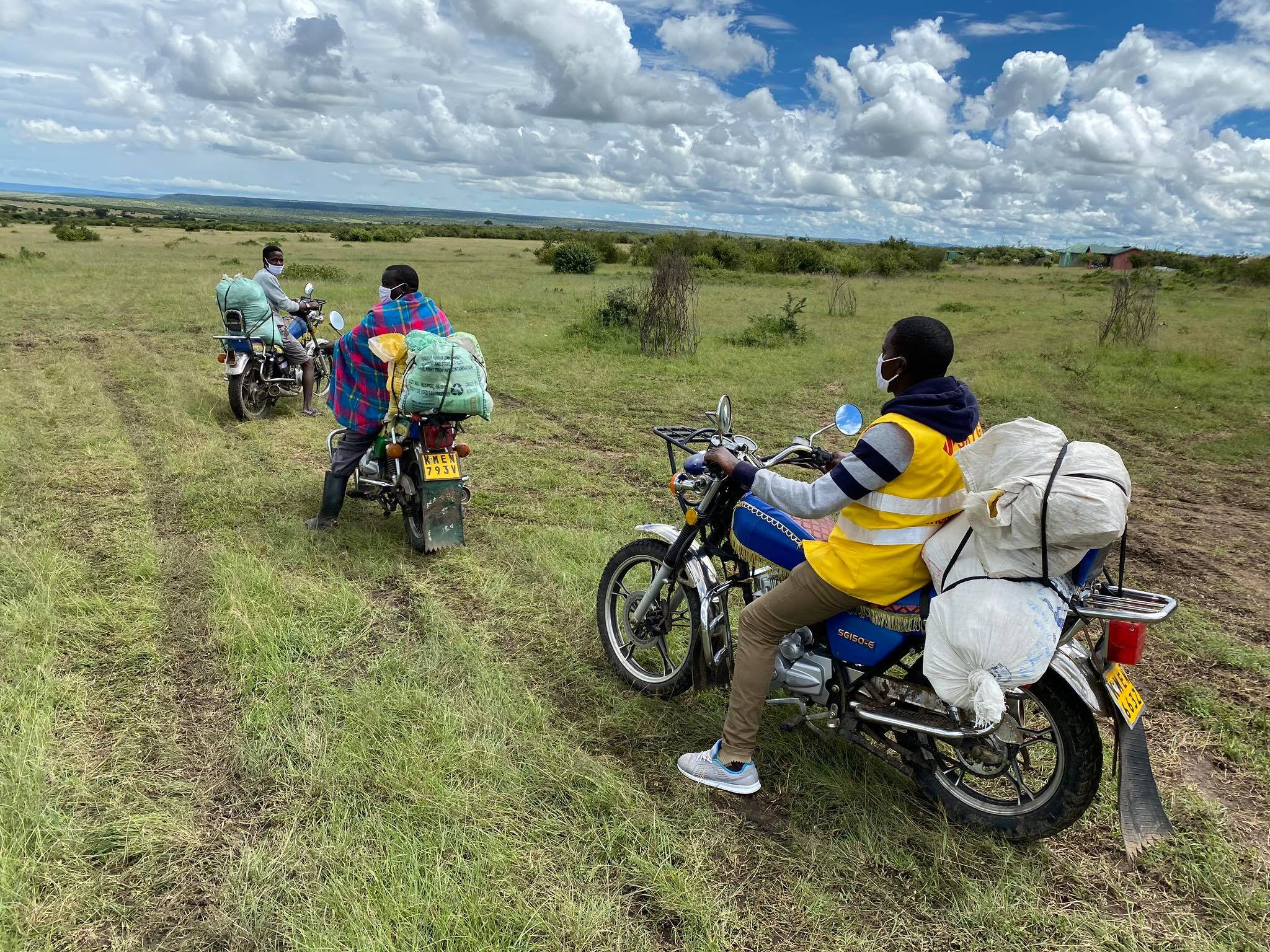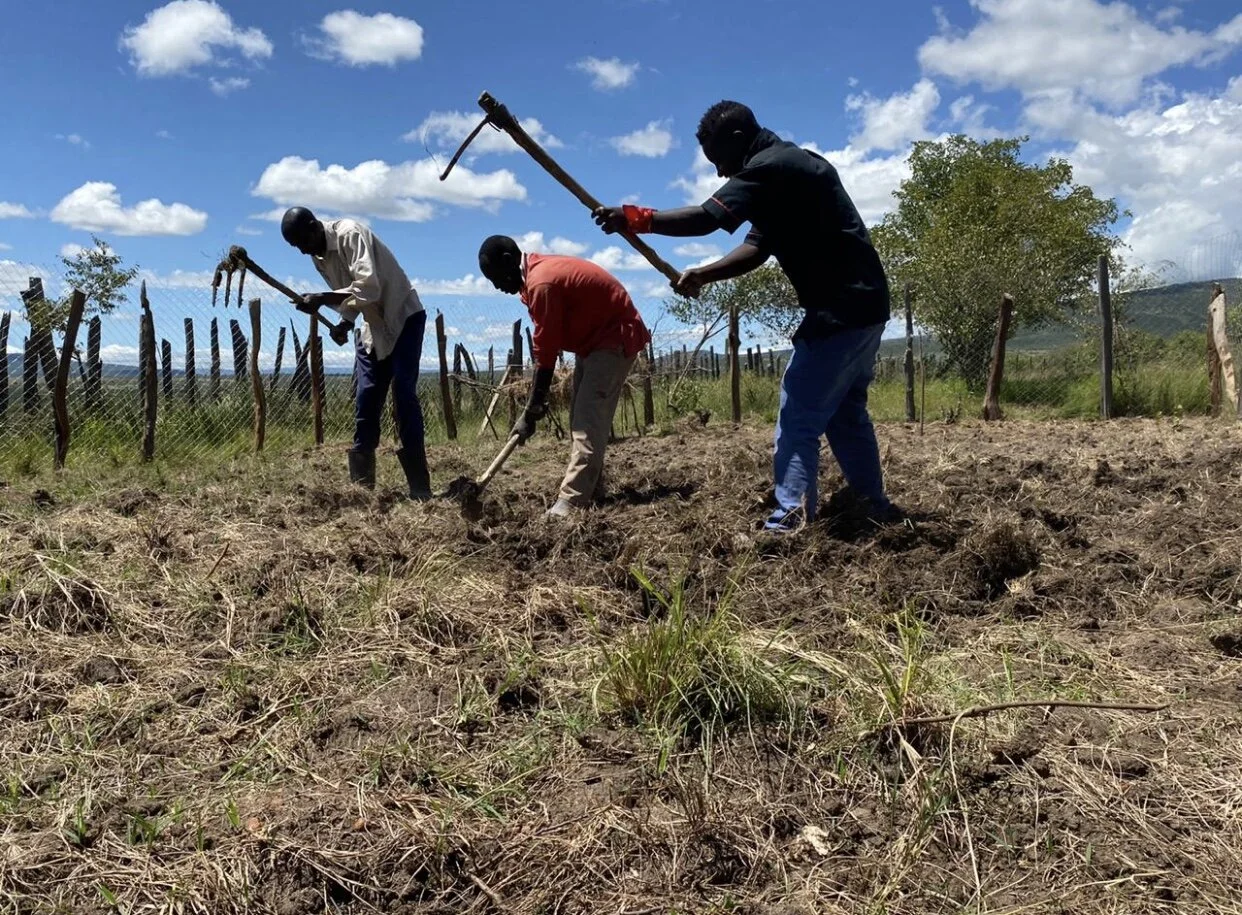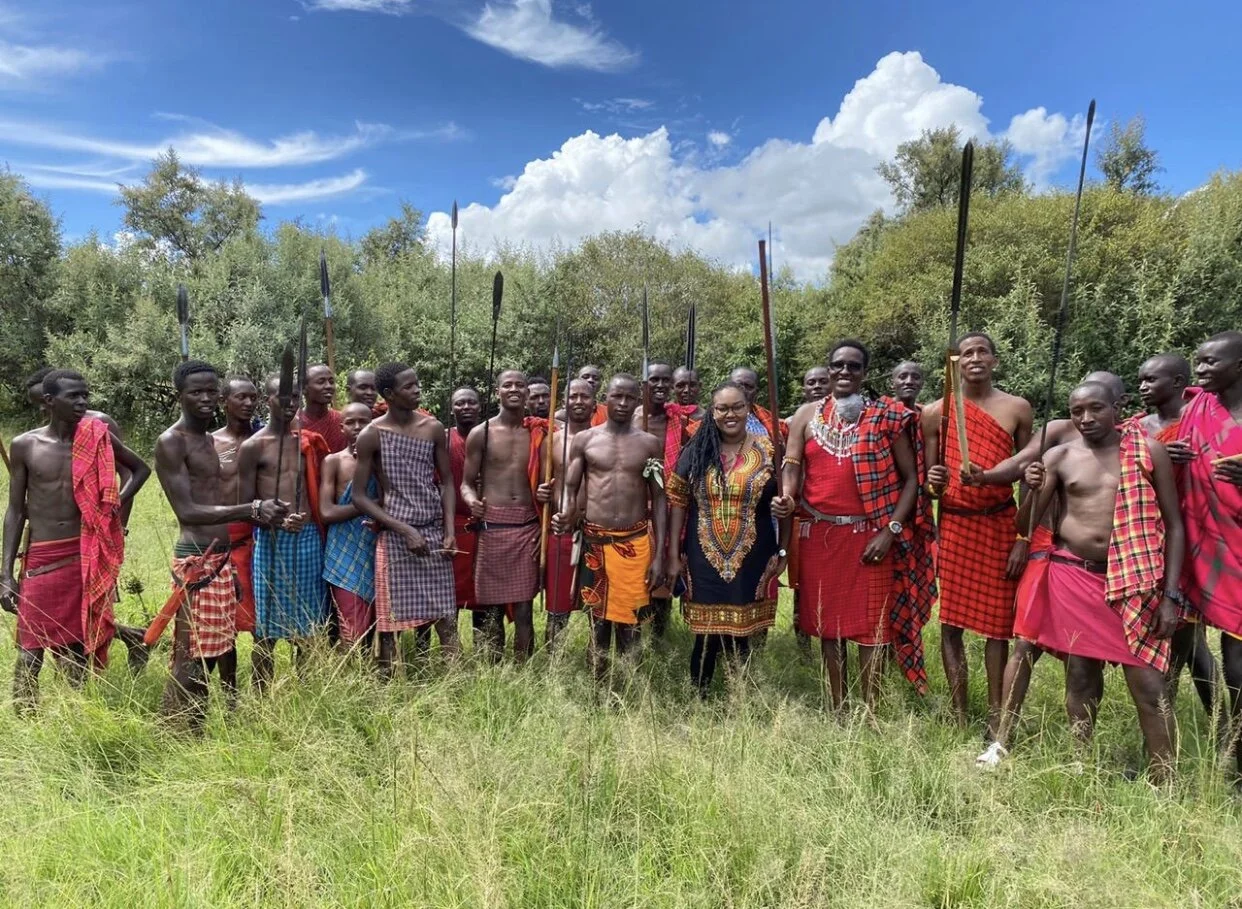A Message of Urgent Need, Courage & Hope
Dear friends,
Our hearts went out to people everywhere as we watched the advance of the pandemic across the globe. Then, at the end of March, we too felt the impact here in the distant Maasai Mara. Our income, modest as it is, vanished overnight with the collapse of tourism on which the Mara’s economy and 90% of Maasai employment depends—which also critically increased the danger to wildlife from poaching. Then the closure of all the communal trading markets, where we traditionally barter a goat or sheep for basic provisions, put our community’s food security at severe risk. Some faced starvation.
But we’re proud to tell you that your inspiring support had huge impact.
THANKS TO YOUR CONFIDENCE IN US, our community rose to handle the health challenges and immediate threat of starvation, launched a river restoration, contained escalating illegal poaching and logging, found means to pay small wages for tree planting and creating kitchen gardens for long term security.
We had never done this before: How did we do it?
We know you, our supporters, understand: it is because Nashulai, being the first Maasai community-owned and led Conservancy, has in the four short years since we were founded created bonds of TRUST and reciprocity in a way no outside organization could or has done. The UNDP/Equator Prize 2020 was announced prior to the outbreak of COVID-19 in Kenya. Nashulai’s swift response to the crisis over the 5 months since vividly shows the strength and resilience of our community model.
From a standing start on April 8, we mobilized fast and efficiently to survive the onslaught—
· Quickly mobilized food distribution to ward off starvation (with markets closed, the Maasai—a trading people—had little access to food), first creating food-supply chains to provide weekly basic provisions (cornmeal, beans, cooking oil and salt) to our 3000 Conservancy members. A Maasai proverb says: “The Maasai do not eat alone,” so we soon expanded the distribution to our neighbours outside the Conservancy then to villages as far away as 100km. Eventually reaching 28,520 people on a regular basis! We repurposed our 2 Conservancy trucks and 4 Scouts motorbikes, travelling through the spring floods. Everywhere we went, we received blessings in return from our neighbours.
· Launched the Sekenani River Restoration Project under the leadership of women, the traditional users of the river, to clean and help protect the Mara-Sekenani watershed through traditional botanical knowledge combined with innovative water-monitoring technology.
The now out-of-school youth carefully apportioning the bulk supplies of cornmeal, beans, cooking oil and salt. They’re working in shifts so they all have an opportunity to help.
Organizing the bulk supplies into equal portions for each “household” in our one-room library—the shelves repurposed for the emergency.
Attempting to abide by “social distancing” in the Maasai Mara is very strange and not easy—but we all try.
Every person responds with blessings for you—our friends around the world who support us. We appreciate and make good use of very dollar or shilling you send. Please help us keep going over the coming months of worry and fear.
Food distribution underway! Each week, the rations are handed to the heads of every boma household.
Waiting with patience and composure! Many divide their own small ration to give to neighbours in greater need. We’ve been able to distribute this food in a peaceful, orderly fashion to individual households across great distances.
Our scouts setting off with rations for distant neighbours, using the bikes acquired for conservation work thanks to generous supporters.
Stuck in the mud! On top of everything else, we’re coping with the rainy season—but it doesn’t stop us!
We’re now trying to prepare, with your support, for the undoubted long-term food security issues. We’ve created our first 2 community-garden plots to train each village how to do the same, plus explore setting up a greenhouse to cushion against shortages. We’ve never done this before—this will be a historical “first” for us as an ancient, pastoral, non-agrarian people! But we must look ahead to self-sustainable alternatives in these times to make it possible for families to weather the ongoing crises.
Digging for the future! Readying our first-ever community garden, for which we need seeds!
WORKING FOR HEALTH: As everywhere in the world, it’s urgent to educate our remote, rural community on safety. The family bomas–where grandmothers, babies, wives and husbands live close together–add extra risk in these times to elders but also to children already compromised by malaria and childhood diseases.
Sanitation: Last year we inaugurated a project to pipe potable spring water for the first time to villages across Nashulai; each now has a single outlet for clean water but under these circumstances that’s not enough. Happily, the new Women’s Co-Operative recently began manufacturing soap locally. Increasing that is now critical.
Prevention: Along with emergency food deliveries, we’ve initiated communications in Maa encouraging safety measures (eg. mask-wearing and sanitation practices) and social distancing outside family groups. This way we can be sure everybody is getting access to the knowledge they need to keep themselves and their families as safe as possible.
Isolation: Given our traditional close-quartered living arrangements (sometimes a half dozen people in one small boma dwelling, along with the newborn calves or goats) we need to prepare isolation spaces for those infected while they wait (hopefully) for access to distant clinics. Nashulai is close to the 4-tented Wageni Safari Camp which has been refitted with bedding as an isolation centre.
Taking on the responsibility of teaching Covid-19 sanitation—helped by our new Women’s Co-Operative’s soap-making project.
INCREASING CONSERVATION EFFORTS: We’re keenly aware of the immediate threats to conservation, plus the dangers from poachers who are resurfacing in this economic climate. We don’t want to lose the remarkable conservation gains we’ve made in such a short time, which included removing the fences to re-open the old migratory routes and eradicating poaching, both of which have had an immediate effect on the return of wildlife.
The Rangers & Scouts—we call them “our Maasai Warriors of the 21st Century”– are the backbone of our conservation efforts, now assisted by our Warriors for Wildlife Protection, guarding against human-wildlife conflict and monitoring the animals such as the elephants, cheetah’s lions and other at-risk species.
Our proud Warriors for Wildlife Protection setting out to live in the bush as in the old way, to guard against resurgent poaching.
Care for community and care for place are one and the same for our people—equally treasured.
WE APPEAL TO YOU NOW FOR YOUR SUPPORT
to help us weather this crisis none of us envisaged or have seen before. When Nashulai was birthed in 2016, we were supported by friends and a global community who believed in the importance of our unique community-run initiative to Conserve Wildlife–Preserve Culture–Reverse Poverty. Already Nashulai has become a shining, hopeful example of positive social and environmental transformation—a paradigm-shifting model offering community-led, nature-based solutions towards the rehabilitation and regeneration of this beautiful worldfor the sake of all our children. We are creating a special place, to be there for people in their deepest moments of need.With your help, we will come out stronger on the other side.
Everything depends on community, wherever you are. We are a storytelling people, and every person in Nashulai hears the story of your support and is grateful for your bracing generosity.
At this critical moment in history, you have the power to help us shape how this story unfolds.
Ashe oleng! Asante sana! Thank you!
Women in action! The rains bring floods, which cut off access. Here they cross a swing bridge over the torrent to reach us.
A page from our ledgers recording food distribution to households in and around Nashulai.
For project updates please follow us on social media
We would like to thank the supporters who donated their time to help us create this website
